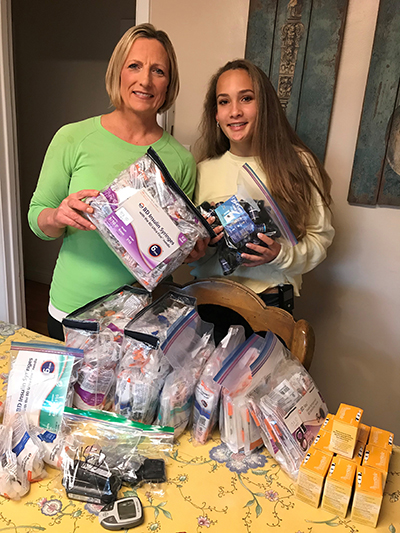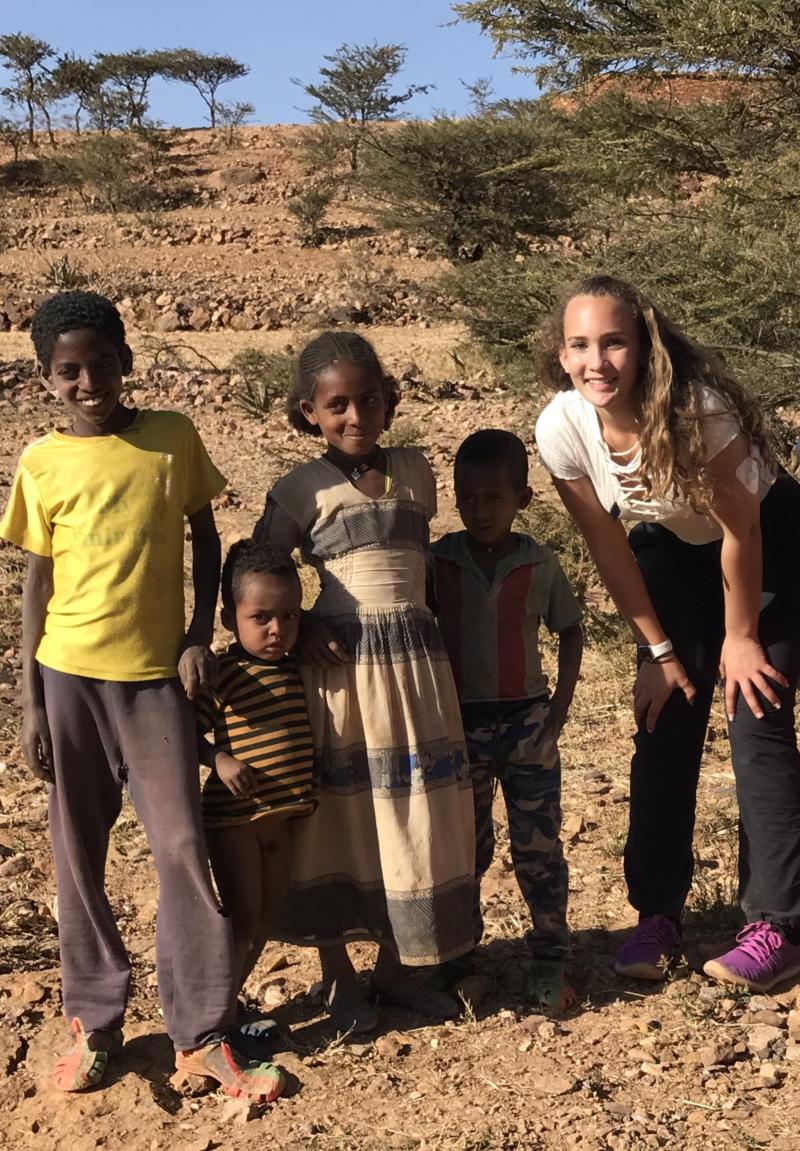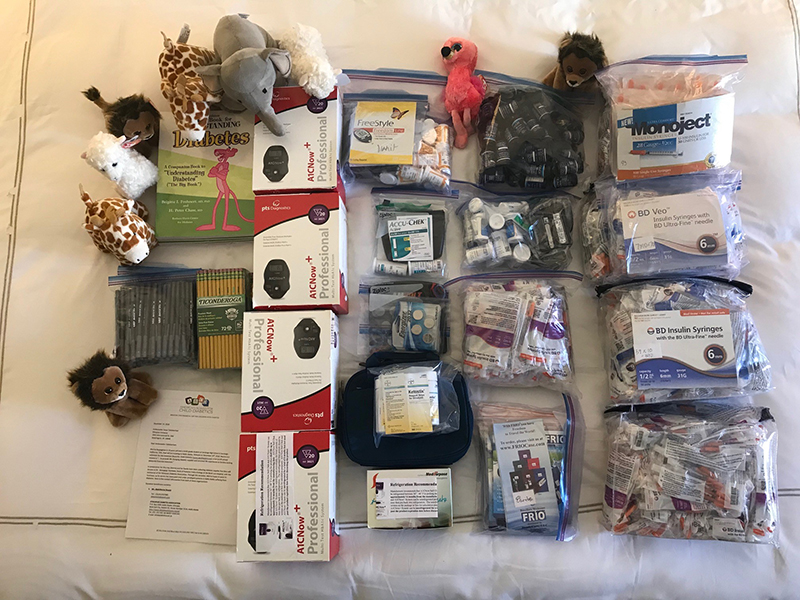The T1D Kaffa Exchange – Making a Difference in Ethiopia
By Bonnie Carlson
This past holiday, my family decided to have an “unplugged Christmas”. Instead of the normal hustle and bustle of the holiday season, we decided to take our kids to Africa for some adventure and life lessons; instead of receiving, we were going to give to others less fortunate. This was a slightly more difficult decision for my 11 year old son, but my adventurous 14 year old daughter was all in and ready to pack her bags.
My husband was born in Ethiopia, and I had been there once before about 17 years ago after we got married, but this was going to be the first trip for our kids. We were excited for them to not only find out more about their dad’s heritage and where he grew up but to finally see many of the places they had just heard about in stories.
As far as the “giving instead of receiving” part, we wanted to bring some things with us that we knew people in Ethiopia could use, including a suitcase filled with lifesaving diabetic supplies. My daughter has lived with type1 diabetes (T1D) for the last 4 ½ years and living with this autoimmune disease is challenging in the United States, so we felt compelled to try and do something to help because living with T1D in Ethiopia, has got to be a lot harder.

Through some friends of my mother-in-law, we reached out to a pediatric endocrinologist at the largest hospital in Addis Ababa, the capital of Ethiopia, to find out what type of supplies his clinic needed. My daughter and I worked with a local non-profit organization, ABC Diabetics, which collects extra supplies that people don’t need any more and then distributes those supplies to people who need them. We told Colleen Haupt, with ABC Diabetics, what the pediatric endocrinologist needed and she gave us a huge box of supplies. We were so excited to deliver these valuable supplies to those who needed them in Ethiopia!
Traveling with medical supplies can be tricky. We wrote letters to Kassa Tekleberhan Gebrehiwot, the Ethiopian Ambassador to the United States in Washington, D.C. to let him know that we would be traveling with these lifesaving supplies and where we would be delivering them in Addis Ababa, to help the poor children in need. We wanted to make sure that we didn’t get held up in customs traveling with over 1,000 insulin syringes, and risk having them confiscated if someone thought we were going to try to sell the supplies. I’m happy to say that our passage through customs was smooth and easy!
When we met with the doctor, we learned a lot about what it’s like to live with diabetes in Ethiopia…and saying it’s “really, really hard” is an understatement! It’s estimated that out of a population of 105,000,000 people, 100,000 children under the age of 18 are diabetic. They have trouble managing this life-threatening disease, due to poverty, lack of education and scarcity of supplies like insulin, glucometers and test strips.
When I was listening to the doctor detail the challenges of living with T1D in Ethiopia, I wanted to sob for days! We brought thousands of dollars’ worth of supplies, but it’s only a drop in the bucket compared to everything that is needed to make it better.

Type 1 diabetes takes constant diligence to manage it well; that diligence comes from lots of diabetes education, ample supplies and being educated about nutritional choices. We have access to all of these things plus cutting edge technology. Most people with diabetes in Ethiopia do not. If T1D is left unmanaged in children, the devastating complications that can occur, such as blindness, kidney failure, heart disease and nerve damage (that can lead to amputations) are all accelerated. My heart was breaking. The anguish and powerlessness these parents must feel; this stuck with me throughout our entire trip.

It was during our long trip home (36 hours to be exact), that we started to think about what we could do to continue to help the diabetic children in Ethiopia. Marina looked at me and said, “I want to help these kids gain access to the type of care, help, and support that I have been blessed to receive throughout my journey with diabetes. Just because they don’t live in the Silicon Valley, doesn’t mean they don’t deserve the same medical care I have. I can give them the voice they never had.”
Once we got home we spoke to some leaders in the international diabetic community that helped us identify a need that we could try to fill. If Ethiopian kids had access more test strips (so they could test their blood sugar more times each day) in combination with more diabetes education (so they understand what the numbers in the glucometer means and what should be done about them), the statistics show that these kids will be able to avoid, or slow down, some of the serious complications that occur with poorly managed diabetes.
So, we decided to start a fundraising campaign. We’re calling it THE KAFFA EXCHANGE because coffee originated in the Kaffa Region of Ethiopia, and we’re asking people to donate what they would spend on a single caramel macchiato to help these beautiful kids get access to more blood glucose test strips and diabetes education. If you would like more information about THE KAFFA EXCHANGE please contact me at bonnie_carlson@yahoo.com. Everyone can make a difference.
“Be the change you want to see in the world.” – Ghandi